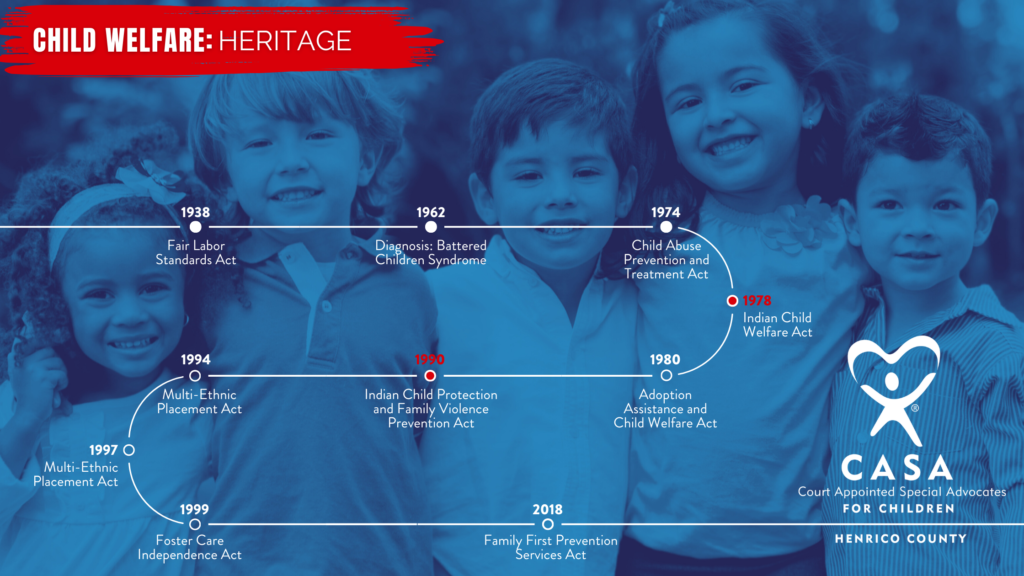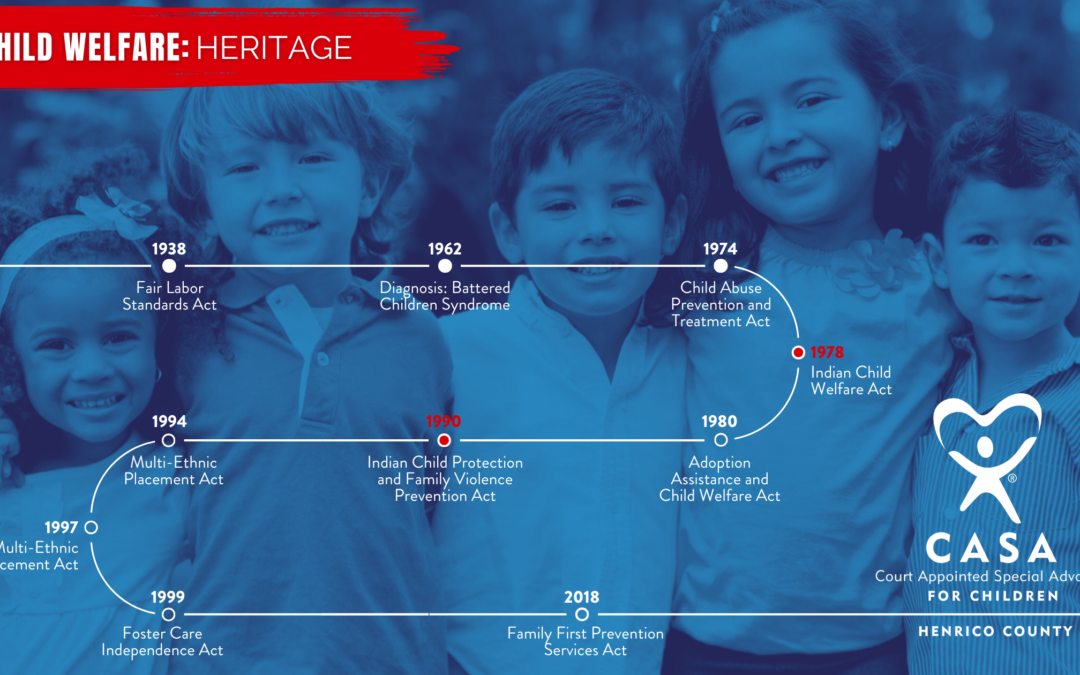
Have you ever wondered how child welfare laws came to be in the United States? It’s a pretty fascinating ride through history, especially when you consider that these laws are relatively new compared to other legal protections we take for granted. In recognition of Child Abuse Prevention Month, our April blog posts highlight some key moments that paved the way for the protections we have today.
Today, let’s delve into a lesser-known but incredibly important aspect of child welfare laws: the impact of the Indian Child Welfare Act (ICWA) of 1978 and the Indian Child Protection and Family Violence Prevention Act of 1990. These two pieces of legislation have played a crucial role in shaping child welfare policies, particularly concerning Native American and Indigenous children and families.
1978
Before ICWA, Native American children were being disproportionately removed from their families and communities and placed in non-Native foster homes or institutions. ICWA recognized the unique cultural and familial ties of Native American children and sought to protect them by prioritizing placement within their own tribes or with Native families whenever possible. This shift marked a significant departure from previous policies that often disregarded the cultural heritage and identity of Indigenous children.
1990
Then, in 1990, the Indian Child Protection and Family Violence Prevention Act addressed the alarming rates of child abuse and neglect within Native American communities. It provided resources and support for tribal child welfare programs. Additionally, it established protocols for reporting and responding to incidents of child abuse and family violence, empowering tribes to take a more active role in protecting their children and families.
These acts paved the way for greater collaboration between tribal governments and state child welfare systems, fostering partnerships that prioritize the best interests of Native children while respecting tribal sovereignty. By ensuring that Native American voices are heard and respected in decisions affecting their children, ICWA and the Indian Child Protection Act represent a powerful affirmation of Indigenous rights and resilience.
May we continue working to create a more just and compassionate world where all children have the opportunity to thrive, regardless of their cultural or ethnic background. Together, let’s honor the past, celebrate the present, and pave the way for a brighter future for generations to come!








